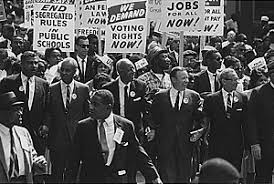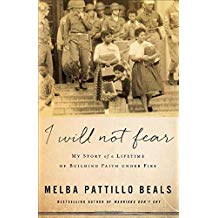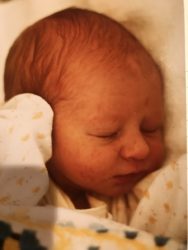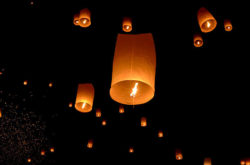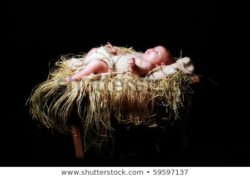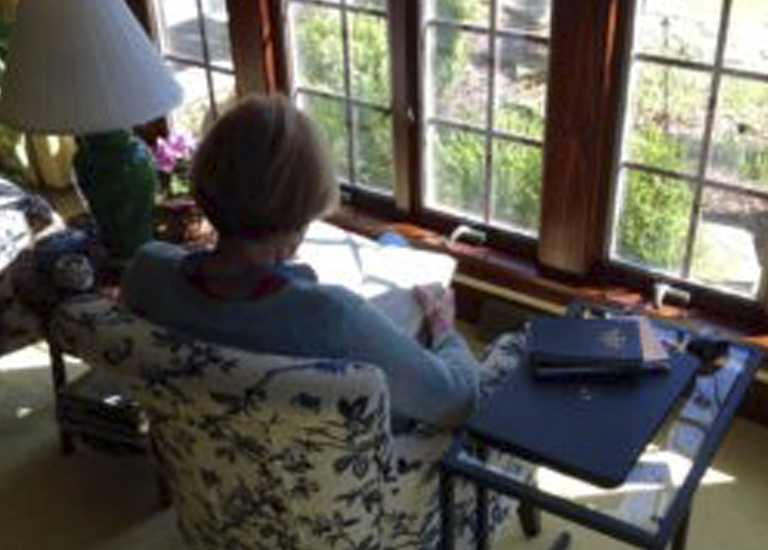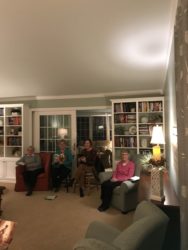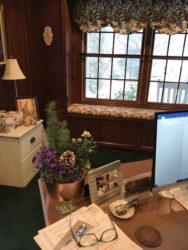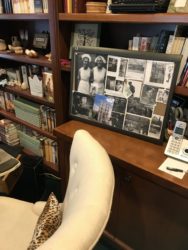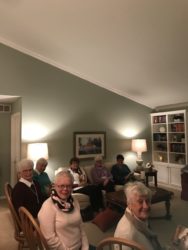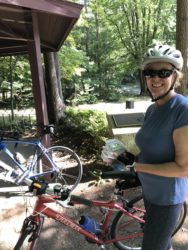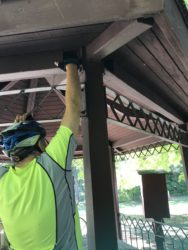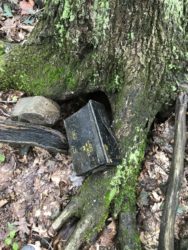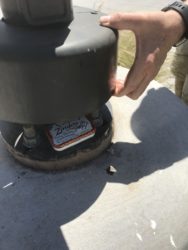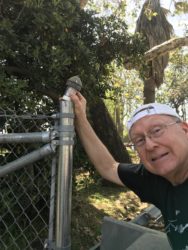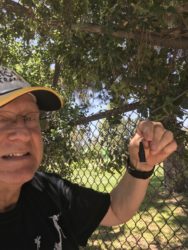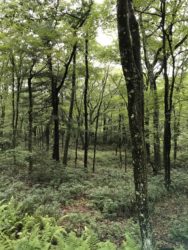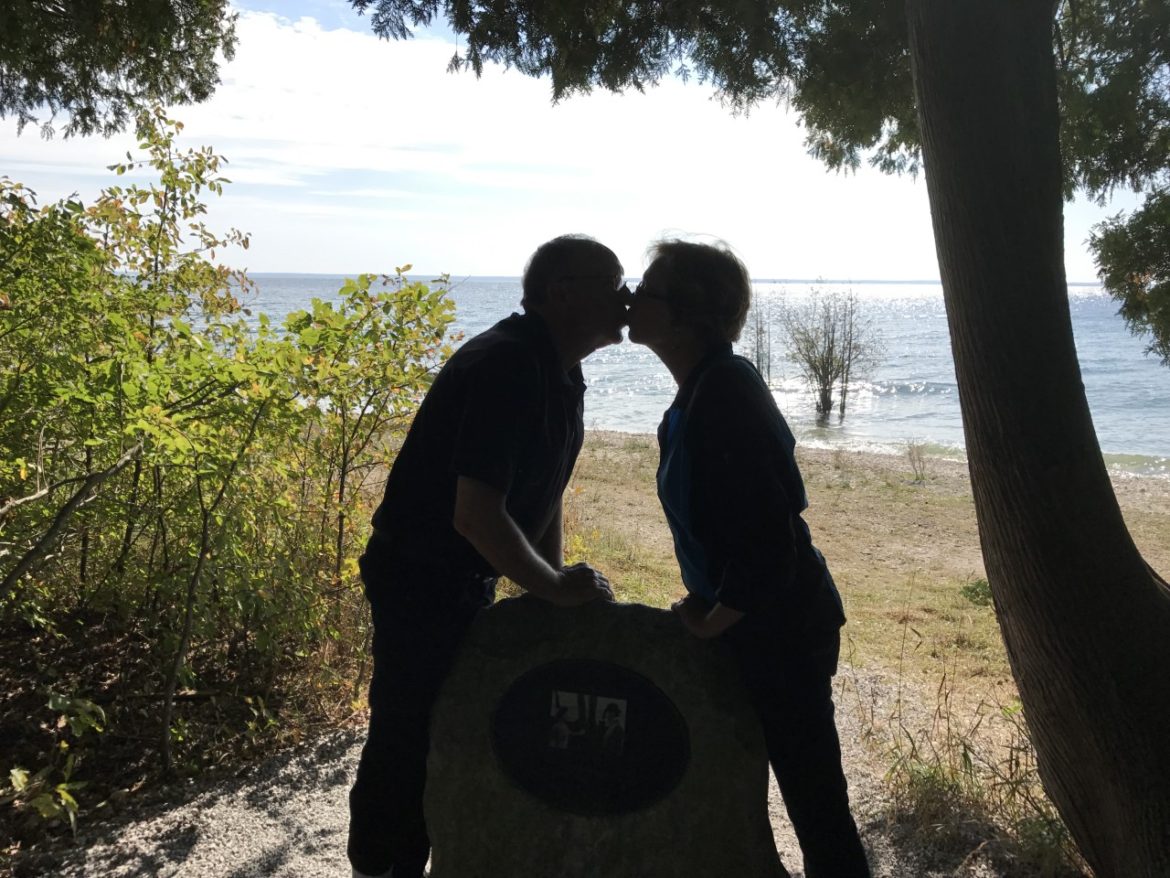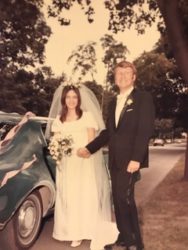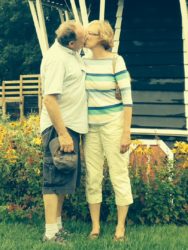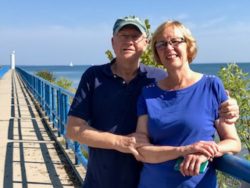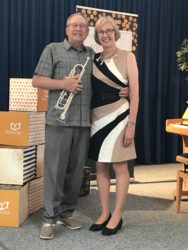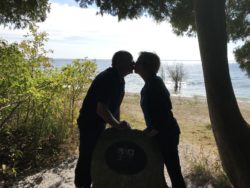If I Had a Dollar…
I often wonder: If I had a dollar for attending every one of my husband’s concerts over the years, how rich would I be? Probably pretty rich! Ken is a professional musician, a trumpet player. He was already the principal trumpeter of the Kalamazoo, Michigan Symphony Orchestra as a college student before we were married. This month, we will celebrate our 49th wedding anniversary. When I do the math, that adds up to a lot of concerts. 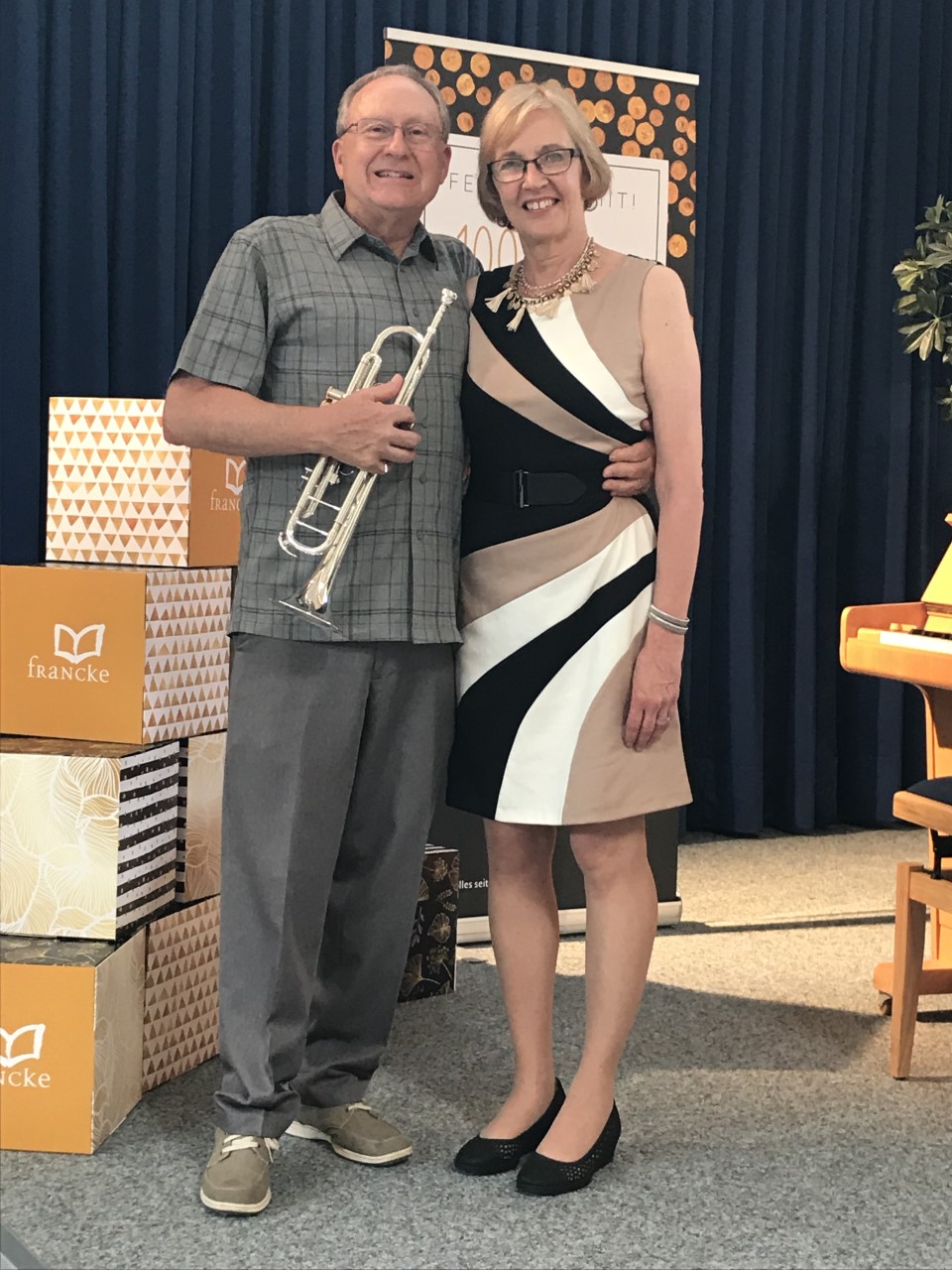
We met while we were both students at Hope College. When he told me he was a Music major, I asked, “So, do you sing, play the piano…?” He said, “I play trumpet a little.” I eventually discovered what an understatement that was! His talent had won him a full scholarship to Hope, and would later win him a full scholarship for his Master’s degree at Yale University. We married right before he started studying at Yale—and the adventure began. 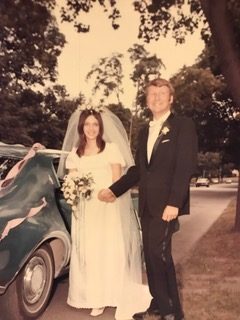
Ken proposed by saying, “If you marry me, we’ll probably never be rich, but we’ll see the world.” He was so right! His first job after graduating from Yale was as principal trumpet in the National Symphony Orchestra in Bogota, Colombia. It was a huge job with a full season of concerts. Bogota is a very cultured city and supports two orchestras, Ken’s being the larger one. We also lived in Canada for eleven years when he performed full-time with two symphony orchestras. There were numerous Broadway musicals such as “Les Miserables” and “The Sound of Music,” and “Fiddler on the Roof.” He toured China with “The New Sousa Band.” Many, many orchestras and performances every place we lived—too many to name—ending up in Chicago for twenty years.
During our time in Indiana, he worked with Bill and Gloria Gaither at their recording studio, and he met and performed with popular Christian artists of the time such as Steve Green and Sandi Patti. He traveled across the country with the Christian group “Truth.” Yes, lots and lots of concerts! 
Now he is “semi-retired,” which means nothing. Our church has an orchestra and brass ensemble that play for our services three Sundays a month. He traveled to Germany with me earlier this year and performed at my publishing company’s 100th Celebration. A week ago, he was in Colorado as a soloist with The Great Western Rocky Mountain Brass Band. Last Tuesday, he played a solo with the Holland American Legion Band for their summer concert series. He had another concert with a Bebop group last Saturday at a Christian Conference center.
To say that I am proud of him would be like saying, “I play trumpet a little.” Thousands of concerts, thousands and thousands of hours of beautiful music. “A dollar for every concert?” My life has been enriched beyond what money could ever buy. Happy Anniversary, Ken! I can’t believe it’s been nearly fifty years! 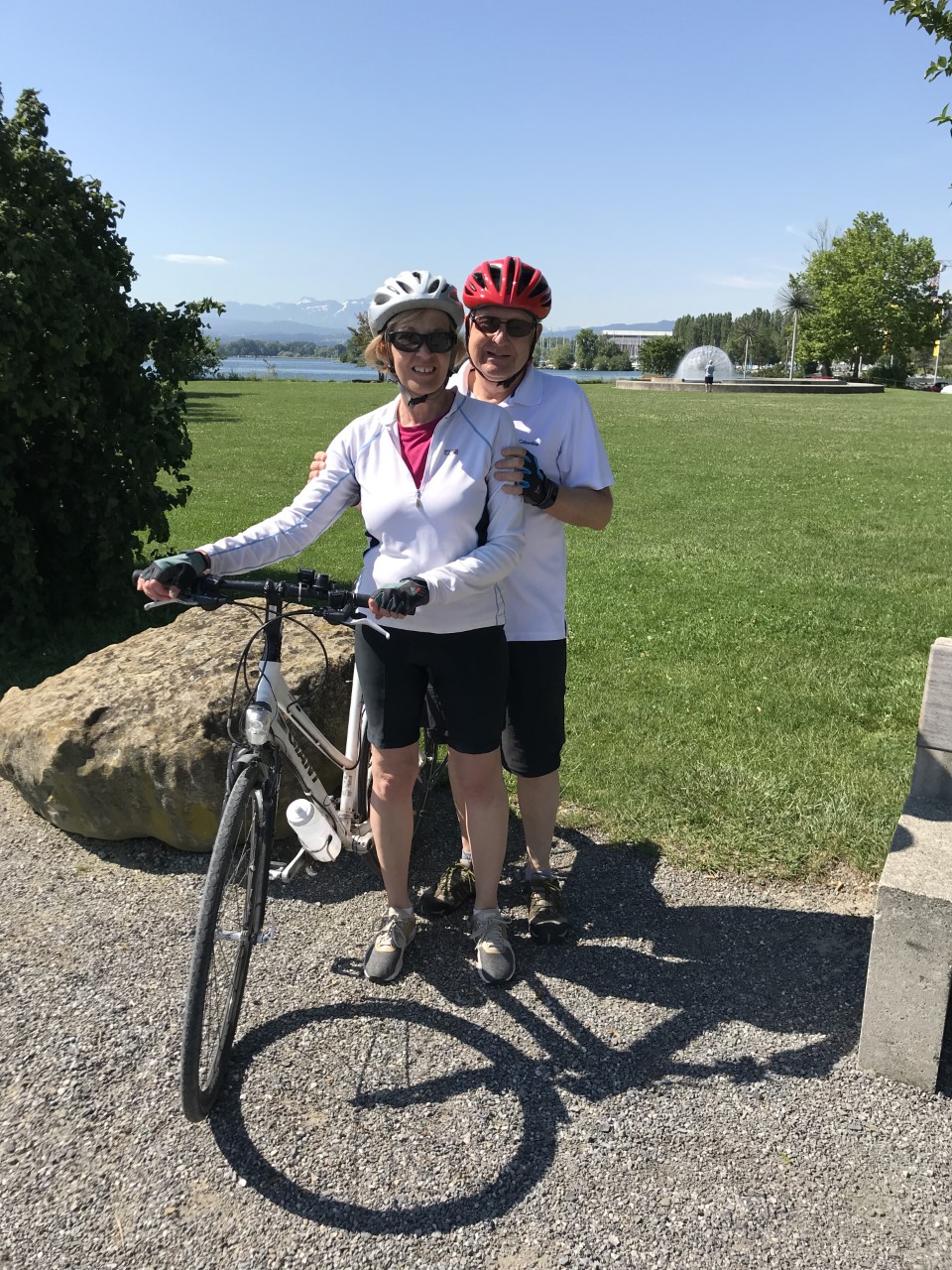
- 3307
- 30
- 5

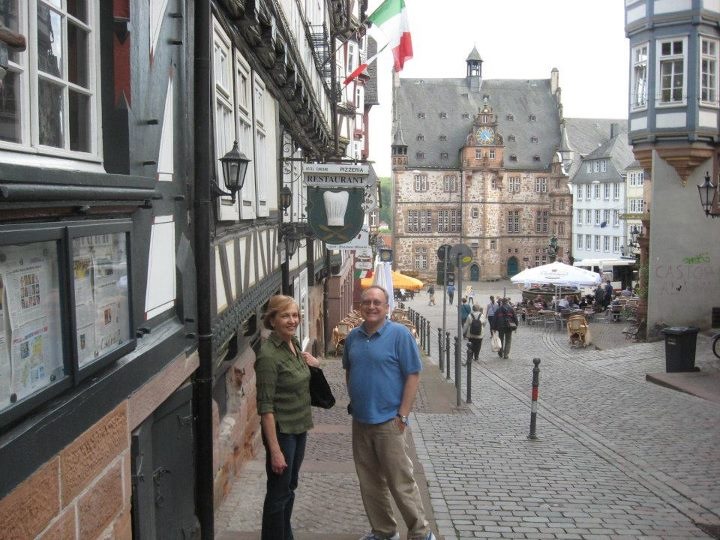
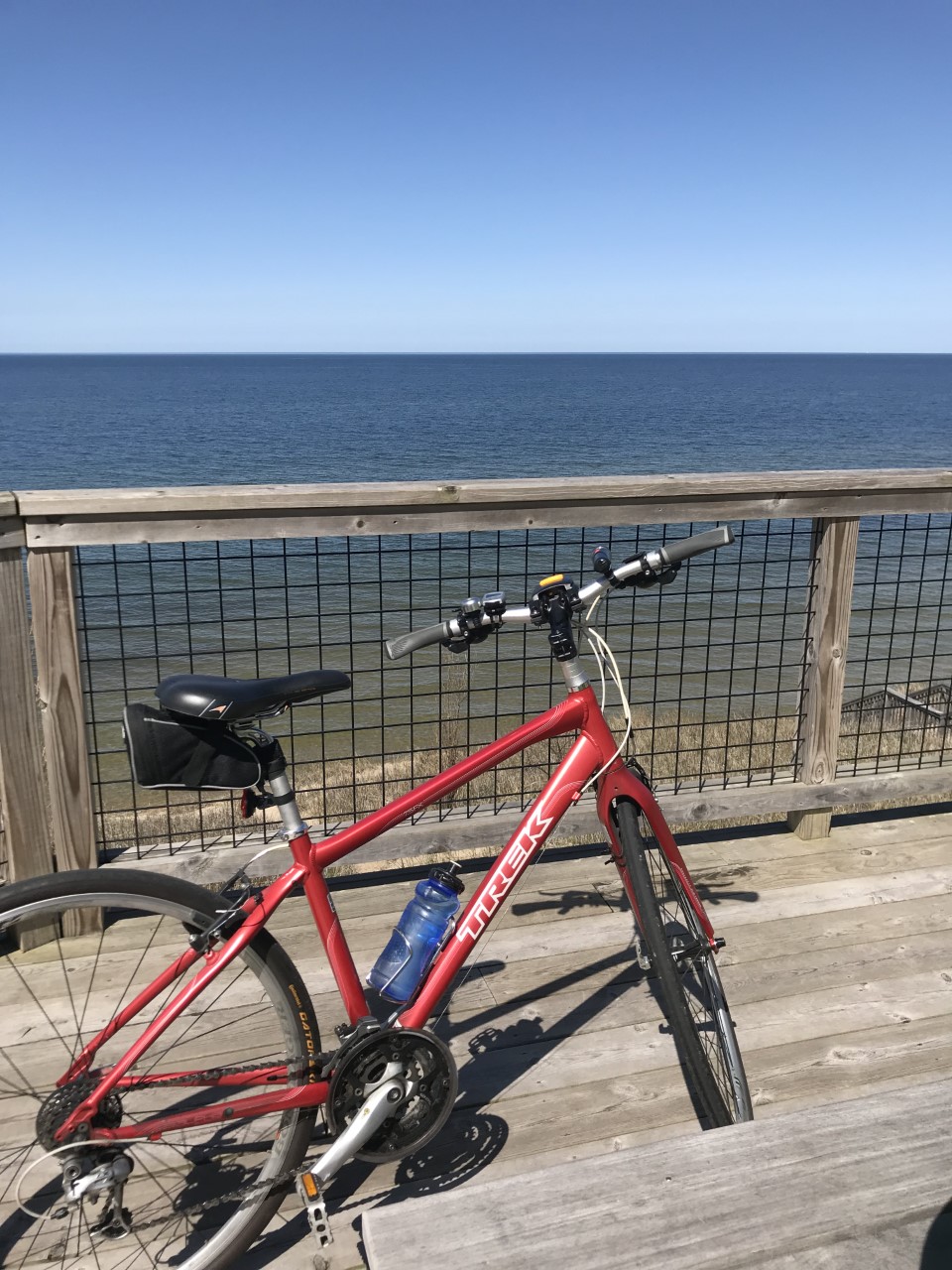
 My oldest son Joshua, who was 14 at the time, went on the dig with me. His wish was to find a skull (of course!) He was excavating a different section of the city and his group ended up finding a complete skeleton! He could happily cross that off his bucket list.
My oldest son Joshua, who was 14 at the time, went on the dig with me. His wish was to find a skull (of course!) He was excavating a different section of the city and his group ended up finding a complete skeleton! He could happily cross that off his bucket list.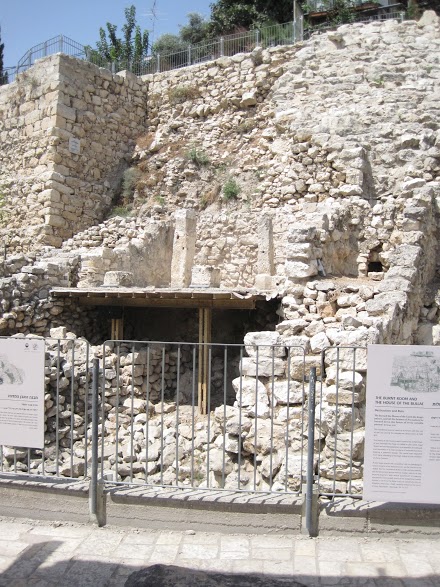
 Along the way, we visited Medieval cities, saw a zeppelin museum, and toured the oldest castle in Germany. We stayed in lovely hotels at night and sampled fine cuisine (and slept like the dead!) I kept a journal and will be posting my story and pictures on a future blog.
Along the way, we visited Medieval cities, saw a zeppelin museum, and toured the oldest castle in Germany. We stayed in lovely hotels at night and sampled fine cuisine (and slept like the dead!) I kept a journal and will be posting my story and pictures on a future blog. We’ve been preparing for this trip since January when we logged 120 miles while vacationing in Florida. The weather in Michigan this spring has been so cold and rainy (and snowy!) that we’ve only been able to log 115 miles in preparation.
We’ve been preparing for this trip since January when we logged 120 miles while vacationing in Florida. The weather in Michigan this spring has been so cold and rainy (and snowy!) that we’ve only been able to log 115 miles in preparation.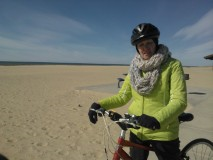 But I love to bike! I feel so alive and happy as I pedal away, absorbing all the sights and sounds and smells. Riding my bike was one of my happiest pastimes as a child, which is why I feel like a kid again whenever I ride (aside from the aches and pains that now come with age). I have a feeling that I’ll be planning our next bike trip as soon as I return from this one.
But I love to bike! I feel so alive and happy as I pedal away, absorbing all the sights and sounds and smells. Riding my bike was one of my happiest pastimes as a child, which is why I feel like a kid again whenever I ride (aside from the aches and pains that now come with age). I have a feeling that I’ll be planning our next bike trip as soon as I return from this one.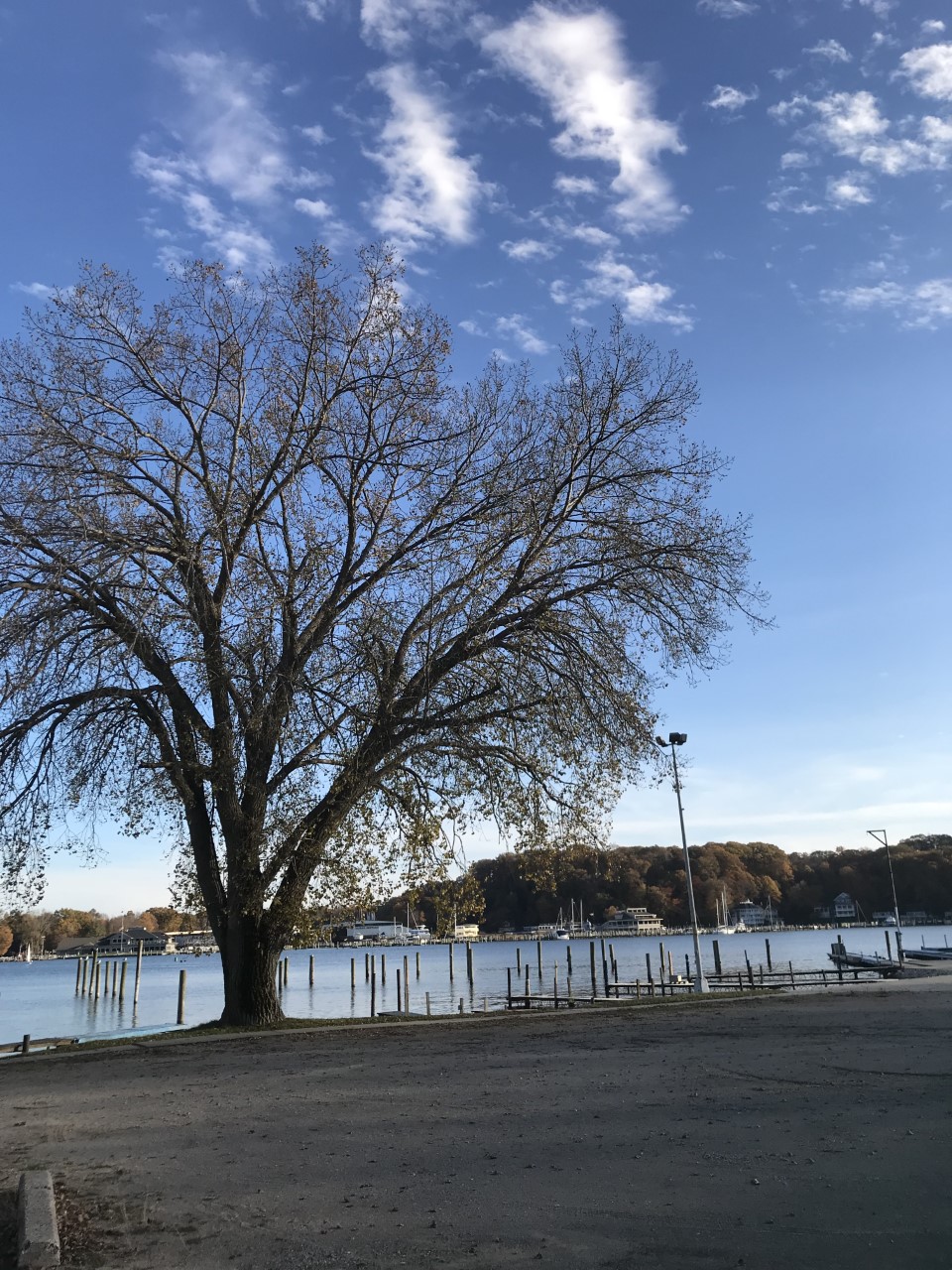

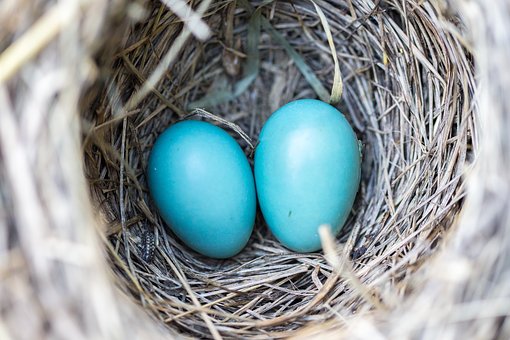
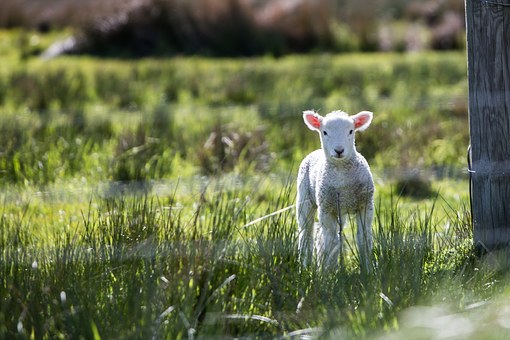

 Each May since 1929, the town where I live—Holland, Michigan—has celebrated their Dutch cultural heritage with nine days of festivities known as Tulip Time. The festival draws more than 500,000 people, who come to see klompen dancers perform in wooden shoes; parades with marching bands and floats; and more than 5 million tulips blooming in every color of the rainbow. Reader’s Digest magazine named it America’s Best Small-Town Festival.
Each May since 1929, the town where I live—Holland, Michigan—has celebrated their Dutch cultural heritage with nine days of festivities known as Tulip Time. The festival draws more than 500,000 people, who come to see klompen dancers perform in wooden shoes; parades with marching bands and floats; and more than 5 million tulips blooming in every color of the rainbow. Reader’s Digest magazine named it America’s Best Small-Town Festival.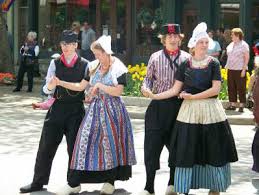 Today Holland’s population is culturally diverse, but everyone loves to participate in Tulip Time whether they are Dutch or not. Area high school students dress in authentic costumes and wooden shoes to perform traditional Dutch folk dances, but the highly-detailed costumes cost a lot of money to create. That’s what the gala fund-raiser was for. I agreed to be auctioned-off to raise funds so that everyone who wanted to participate as a klompen dancer could afford an authentic costume. And soon I will join the winning bidder and her book club to talk about my novel “Waves of Mercy.” I’m very excited!
Today Holland’s population is culturally diverse, but everyone loves to participate in Tulip Time whether they are Dutch or not. Area high school students dress in authentic costumes and wooden shoes to perform traditional Dutch folk dances, but the highly-detailed costumes cost a lot of money to create. That’s what the gala fund-raiser was for. I agreed to be auctioned-off to raise funds so that everyone who wanted to participate as a klompen dancer could afford an authentic costume. And soon I will join the winning bidder and her book club to talk about my novel “Waves of Mercy.” I’m very excited!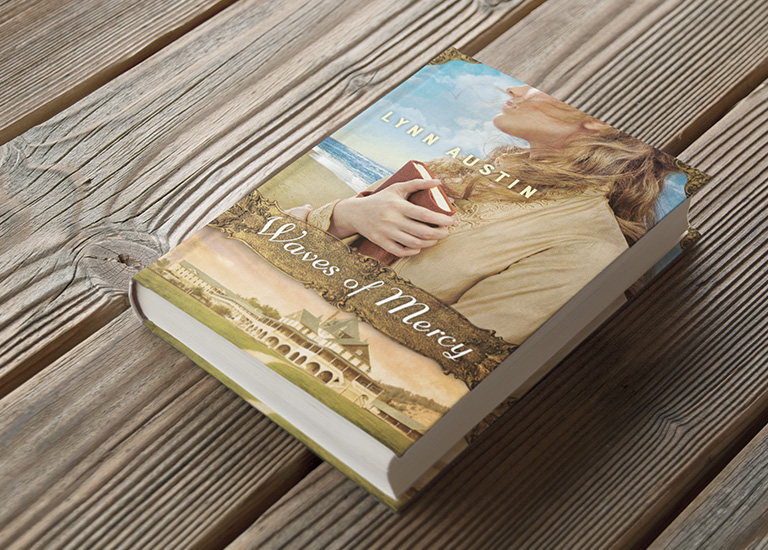
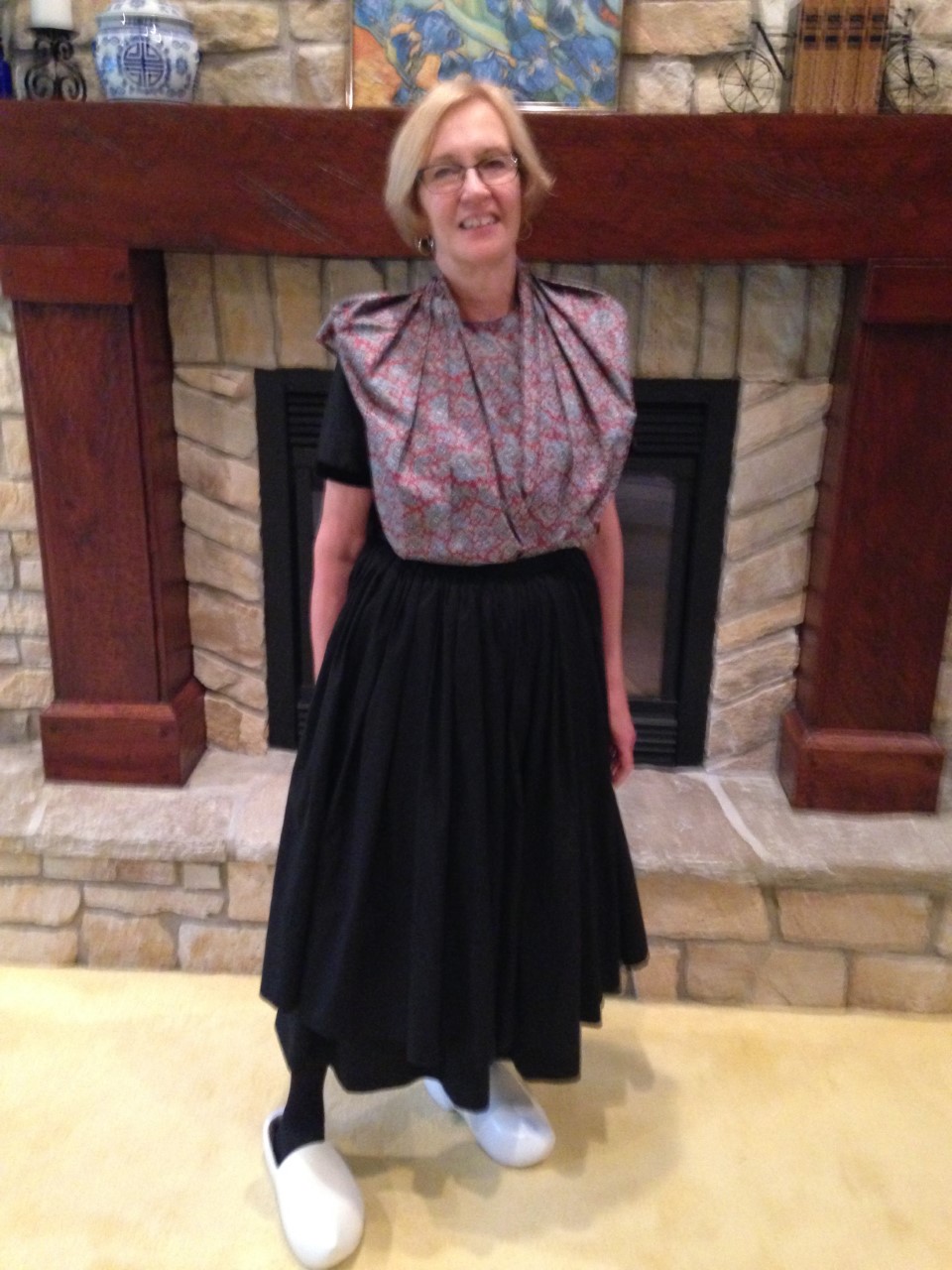



 Not long afterwards, I was busy writing one Saturday morning while my children played nearby and my husband taught music lessons to a parade of students. As one young student waited for his turn, he wandered up to me and asked what I was doing. I hesitated. Should I admit to this 16-year-old stranger that I wanted to be a writer? I decided to set aside my fear and trust God, so I replied, “I’m writing a novel. I’m a writer.”
Not long afterwards, I was busy writing one Saturday morning while my children played nearby and my husband taught music lessons to a parade of students. As one young student waited for his turn, he wandered up to me and asked what I was doing. I hesitated. Should I admit to this 16-year-old stranger that I wanted to be a writer? I decided to set aside my fear and trust God, so I replied, “I’m writing a novel. I’m a writer.” One of the first things Alma did was invite me to her writers’ critique group. Again, fear nearly defeated me. How could I possibly read my feeble work to other writers and risk criticism? No way! But when I set aside my fear, I quickly discovered how helpful it was to have unbiased readers critique my work. Alma also told me about writers’ conferences like the one where I taught last week, and she accompanied me to my very first one. Twenty-seven published books later, I am still grateful to Alma, and very glad that I didn’t let fear stop me from pursuing God’s dream for me.
One of the first things Alma did was invite me to her writers’ critique group. Again, fear nearly defeated me. How could I possibly read my feeble work to other writers and risk criticism? No way! But when I set aside my fear, I quickly discovered how helpful it was to have unbiased readers critique my work. Alma also told me about writers’ conferences like the one where I taught last week, and she accompanied me to my very first one. Twenty-seven published books later, I am still grateful to Alma, and very glad that I didn’t let fear stop me from pursuing God’s dream for me.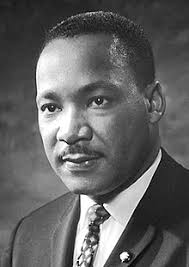
 As I grew older, news of the Civil Rights Movement appeared on the front pages of the newspapers and in nightly newscasts. I knew that a great war was being fought, with soldiers and guns and the deaths of innocent civilians. The battle divided our nation. I was a teenager when Dr. Martin Luther King, Jr. was assassinated, his death the result of hatred and racism. In spite of all the laws and amendments our government had passed, the injustice I had glimpsed as a child continued. Sadly, some fifty years later, it still continues.
As I grew older, news of the Civil Rights Movement appeared on the front pages of the newspapers and in nightly newscasts. I knew that a great war was being fought, with soldiers and guns and the deaths of innocent civilians. The battle divided our nation. I was a teenager when Dr. Martin Luther King, Jr. was assassinated, his death the result of hatred and racism. In spite of all the laws and amendments our government had passed, the injustice I had glimpsed as a child continued. Sadly, some fifty years later, it still continues.